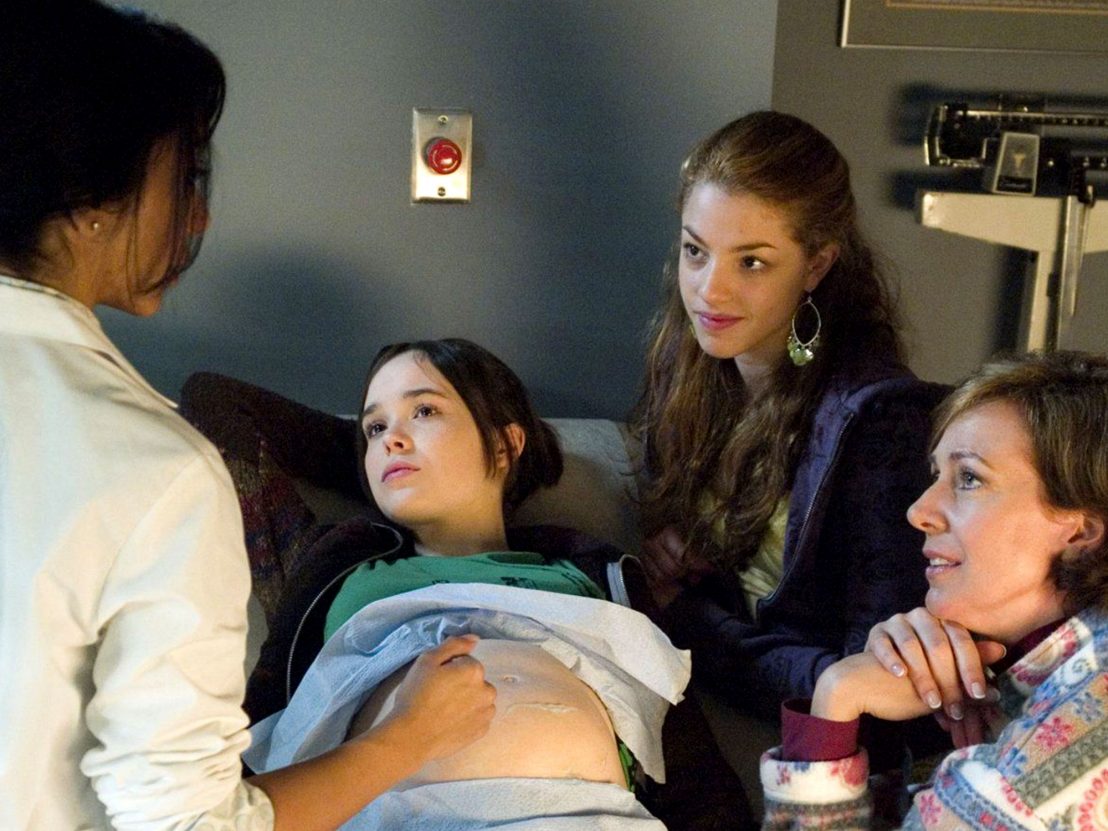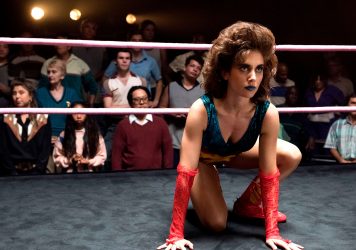
“Hi, I’m calling to procure a hasty abortion.” These words struck a chord with teenage audiences in 2007, confronting popcorn-filled sleepovers with a scarily adult prospect. The subject of childbirth itself did not come as a surprise, given that the DVD cover depicted a heavily pregnant Ellen Page – yet the subject of abortion definitely was, and this is what made Juno feel so fresh and unique. Not only was this a film that explored reproductive freedom with a by turns whimsical and harrowing tone, it also exposed the challenges faced by women at a time when the subject was still considered taboo.
Juno MacGuff was just like any other offbeat teenager; tenaciously sarcastic, comically candid and completely unprepared for motherhood. During a scene at the abortion clinic she discovers that the foetus inside her already has fingernails, something that contributes to her decision to carry the baby to full term and give the child up for adoption. Yet despite this seemingly smooth solution to an otherwise problematic situation, the film refuses to shy away from the complexities of familial relationships and the vulnerabilities of youth, affording its precocious protagonist the right to exercise agency over her own body, exorcise the trauma that occurs as a result of giving up a child when you’re a child yourself, and ultimately bringing about her own healing. Juno gave millennial women the possibility of hope, strength and humility amid adversity, something that has since led to more honest portrayals of unexpected pregnancy in film and television.
Fast forward to today and US laws on reproductive rights have taken a misogynistic turn, a result of Donald Trump’s election to the highest office in the land, including blocks on funding for Planned Parenthood and a bill that gives employers the right to fire female employees if they use birth control. These attacks on women’s bodies have also coincided with NHS budget cuts in the UK, which have the potential to threaten women’s healthcare. At a time when female bodies are being policed more than ever, we can find value in the arguably more humane realms of film and fiction, in which reproductive stories are treated with sensitivity and a frankness that is refreshing, despite being largely absent in current politics.
Turning to one of the more recent examples, Netflix’s feminist wrestling sensation GLOW, we are brought to a different realisation than that in Juno, but one that is no less reflective of reality. Instead of a nervous teenager, we are plunged head first into a thirtysomething struggling actress’ gut wrenching predicament that she is pregnant as a result of an affair with her best friend’s husband. The following events unfold with minimal drama but utmost sincerity. During the car ride to the clinic, Ruth’s (Alison Brie) boss Sam (Marc Maron) asks her if she’s okay with what she’s doing and she replies, “It’s not the right time, not the right baby.” There is no tiptoeing around the subject of abortion in this series, despite being set in the ’80s, and this makes for a raw and honest depiction of reproductive responsibility as an integral component of being a woman.
Since Juno’s release we’ve also seen other on screen characters tackle the same dilemma in a healthy feminist spirit, including hit drama Jane The Virgin, in which Jane’s mother Xiomara, after repeatedly stating that she didn’t want any more children, accidentally falls pregnant and has an abortion. The show deals with this in a similar vein – empathetic but casual. This by no means makes light of her decision, but instead invites us to reconsider the social and cultural stigma surrounding the termination of a pregnancy and the crucial right women have to control their own bodies.
The treatment of abortion in Scandal was also a resonating narrative for modern audiences, in which we see Olivia Pope (Kerry Washington) undergoing the procedure and experiencing the aftermath, with Shonda Rhimes consequently being praised by Planned Parenthood for taking a stance on reproductive rights and shedding light on women’s stories.
Lena Dunham’s Girls, though flawed when it comes to intersectional feminism, is renowned for its staunchly pro-female narratives, providing a lens through which we can experience both the ugly and endearing sides of female youth. As a modern parallel to Juno, it also came as a surprise to fans when main character Hannah falls pregnant but chooses to keep her baby, emphasising the statement that when it comes to reproductive choice, it is just that: a choice. In a raw, sometimes uncomfortable light, this story allows audiences to glimpse other stigmatic issues faced by women that don’t revolve around abortion or giving up a child, including post-natal depression and the concept of maternal instinct.
Over the past decade, these female-driven narratives have not only normalised the realities of reproductive choice but also challenged the notion that the life of an unborn foetus is more important than that of a living, breathing woman. Exposing contemporary stories like these in the favourite films and TV shows of a new generation of popcorn filled teenagers will endow, instead of fear or confusion, a sense of security that their stories are being told. This is the lasting effect of representation of reproductive rights in film, translating empowerment from character to self, and from screen to reality.
Published 2 Sep 2017

Netflix’s new show emphasises just how deep gender stereotypes run in mainstream media.

By Lara C Cory
There’s so much more to this lusty ’80s hit than meets the eye.

The Lisbon sisters helped me to understand my own awkward coming of age.